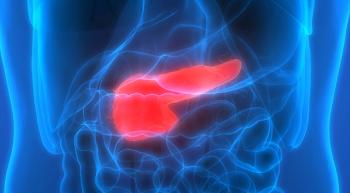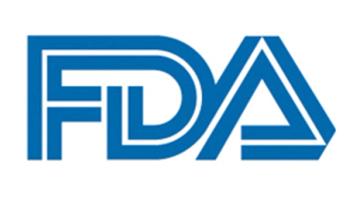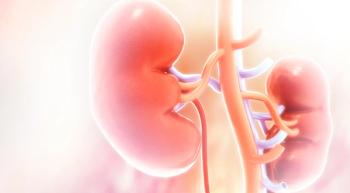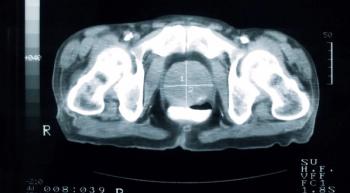
Compassion fatigue leads to high nursing turnover, and can also affect patient care, according to recent research.

Compassion fatigue leads to high nursing turnover, and can also affect patient care, according to recent research.

Relationships between nurses and patients can be nuanced, and we want to hear what you think about interacting on social media.

The role of radical surgical resection in advanced melanoma has become more conservative and cosmetically sensitive, according to Richard L. Shapiro, MD.

As life expectancies grow longer in Lebanon, there is an increase in the amount of people diagnosed with cancer.

Encorafenib (Braftovi) plus cetuximab (Erbitux) with or without binimetinib (Mektovi) demonstrated longer maintenance of quality of life (QoL) on patient-reported assessments over current standard of care in the treatment of patients with BRAF V600E-mutant metastatic colorectal cancer.

While earlier efforts of precision medicine focused on basket trials, Tanios S. Bekaii-Saab, MD, explained that it’s time for the field of oncology to move on to umbrella trial designs that can better target an individual cancer.

Optimal management of treatment-related dermatologic adverse events (AEs) in patients with melanoma is essential for proper care, according to Tracey Liebman, MD.

Updated data on several emerging treatment modalities were presented at the 2019 ASH Annual Meeting in multiple myeloma, including CAR T-cell therapy, antibody-drug conjugates (ADCs), bispecific T-cell engagers (BiTEs), and a novel selinexor (Xpovio) combination, explained Sandy W. Wong, MD.

Certain GE Healthcare Clinical Information Central Stations and Telemetry Servers may be compromised, according to the FDA.

The FDA has granted an accelerated approval to tazemetostat (Tazverik) for the treatment of adult and pediatric patients aged ≥16 years old with metastatic or locally advanced epithelioid sarcoma that is not eligible for complete resection.

Biosimilars are moving into the breast cancer treatment space, and have potential to bring costs down, but the hard numbers are still to be determined.

Surufatinib improved progression-free survival (PFS) compared with placebo in patients with low- or intermediate-grade advanced pancreatic neuroendocrine tumors (pNETs) for whom there is no effective therapy, according to a preplanned interim analysis of the phase III SANET-p trial (NCT02589821) that was completed by an independent data monitoring committee (IDMC).

The FDA has granted an orphan drug designation to durvalumab (Imfinzi) and tremelimumab for the treatment of patients with hepatocellular carcinoma (HCC).

The agency granted the immunoconjugate targeting B-cell maturation antigen priority review to belantamab mafodotin for the treatment of heavily pre-treated patients with relapsed or refractory multiple myeloma.

Oncoprex in combination with osimertinib received fast track designation from the FDA to treat patients with non-small cell lung cancer.

Being able to quickly detect and properly manage adverse events (AEs) that arise in patients with melanoma who are receiving immunotherapy is key to improving their experience with treatment, explained Kathleen Madden, RN, MSN, FNP-BC, AOCNP®, APHN.

The role of radiation therapy, specifically with elective nodal irradiation (ENI), has evolved over the past several years, said He James Zhu, MD, PhD, adding that the technique should be performed in patients with breast cancer on an individualized basis.

Despite the approvals of targeted agents and immunotherapy in the treatment paradigm of metastatic melanoma, clinical trials remain the gold standard for patients with newly diagnosed disease, according to Anna C. Pavlick, DO.

Nurses and other healthcare practitioners should discontinue use of Cardinal Health surgical gowns and packs, according to the agency.

The FDA granted priority review to rucaparib for the treatment of adult patients with BRCA1/2-mutant recurrent, metastatic castration-resistant prostate cancer.

The FDA accepted and granted priority review to the supplemental biologics license application for nivolumab in combination with ipilimumab for the first-line treatment of patients with metastatic or recurrent non-small cell lung cancer.

In this special edition podcast, we spoke with both a physician and a nurse about the management of immune-related adverse events in patients with melanoma.

Treatment with luspatercept-aamt (Reblozyl) reduced the severity of anemia in patients with very low- to intermediate-risk myelodysplastic syndromes (MDS) with ring sideroblasts who require red blood cell (RBC) transfusions, according to findings from the phase III MEDALIST trial that have now been published in the New England Journal of Medicine (NEJM).

Research presented at the 2019 San Antonio Breast Cancer Symposium (SABCS) had a significant effect on the standard of care for patients with HER2-positive metastatic breast cancer, explained Erika P. Hamilton, MD.

The FDA has granted a priority review for the combination of olaparib and bevacizumab for the maintenance treatment of patients with advanced ovarian cancer.

We asked our audience about what kind of cancer advancements they wish to see in the next 10 years. Here’s what they had to say.

The standard of care for treatment-naïve patients with advanced renal cell carcinoma (RCC) has shifted from a single-agent VEGF TKI to a checkpoint inhibitor plus either a VEGF TKI or a CTLA-4 inhibitor, explained David F. McDermott, MD.

Novel next-generation imaging modalities have greater visibility than conventional imaging tools, leading to higher detection rates and earlier treatment of early recurrences and metastatic disease among men with prostate cancer, explained Hussein Aoun, MD.

See what your peers voted to be the top cancer advancements of the decade!

The FDA has approved avapritinib (Ayvakit) for the treatment of adult patients with unresectable or metastatic gastrointestinal stromal tumor (GIST) harboring a PDGFRA exon 18 mutation, including PDGFRA D842V mutations.